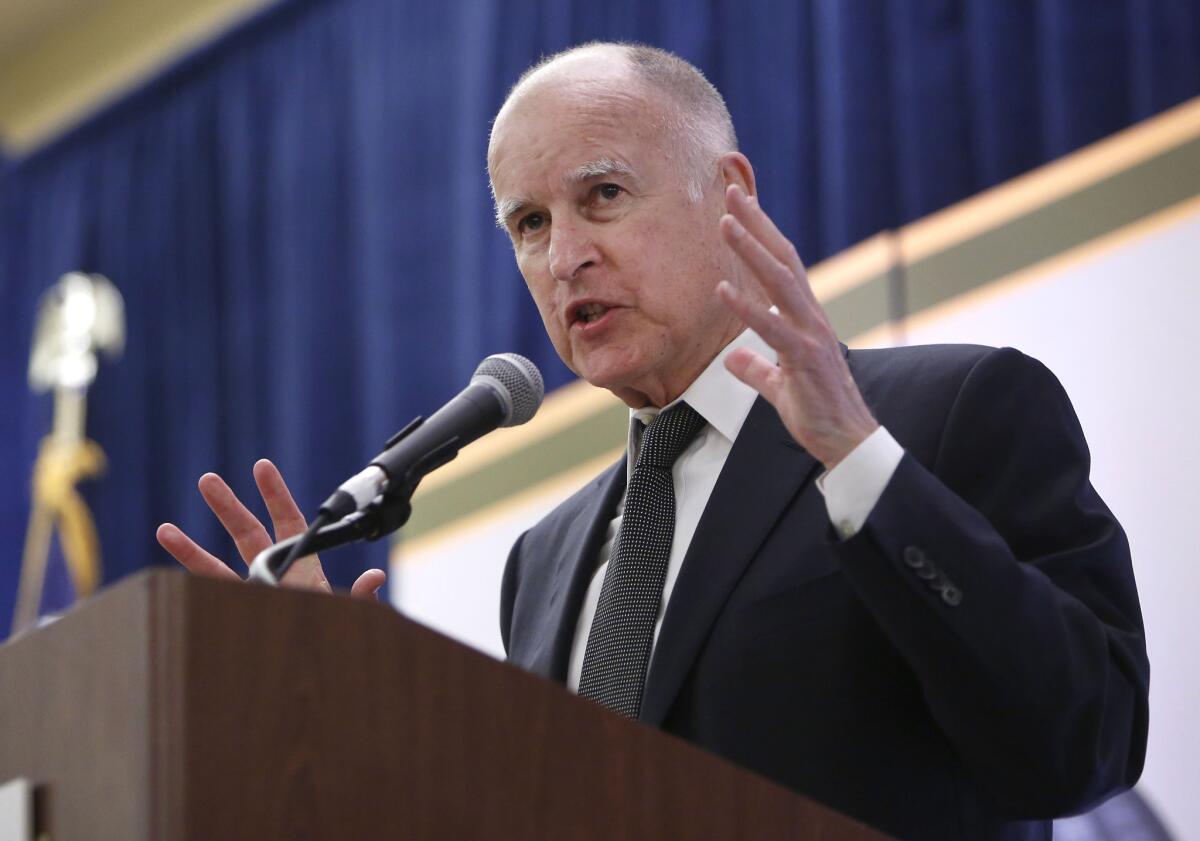Jerry Brown, top lawmakers reach budget deal on school spending

- Share via
SACRAMENTO -- Gov. Jerry Brown and top lawmakers have agreed on perhaps the most contentious part of the state budget -- Brown’s proposal to redistribute state money to schools -- according to Capitol sources who asked for anonymity because they were not authorized to speak publicly.
The plan will accomplish much of what the governor wanted and will go into effect in the upcoming budget year, rather than be delayed.
There’s a higher threshold than Brown proposed for when school districts qualify for extra funds, or “concentration grants”; 55% of a district’s students must be poor or English learners, rather than 50%. The deal will also increase by $537 the base amount of money awarded for each student in every district, a tweak sought by Senate Democrats.
Budget negotiations have also yielded a series of compromises sought by Senate leader Darrell Steinberg (D-Sacramento) and Assembly Speaker John A. Pérez (D-Los Angeles).
Two highly placed sources said dental care for poor adults, cut during years of financial crisis, will be restored, but implementation will be delayed for a year, when officials hope California’s finances will be stronger. Dental coverage appears to be less expansive than Steinberg wanted, with an allocation of $80 million instead of the initial $131 he proposed.
The budget agreement also includes $140 million in one-time general fund spending on mental health programs, another priority for Steinberg.
Sources also said they expect the budget to include Pérez’s proposal to reduce university tuition for students from middle-class families, though not the full package sought by the speaker.
Another compromise has been reached on how the state will use money generated by Proposition 39, which changed the corporate tax code, according to Greg Hayes, a spokesman for Sen. Kevin de Leon (D-Los Angeles).
Roughly $2.5 billion earmarked for energy efficiency projects over the next five years will be distributed to schools and community colleges based largely on how many students are in each district, much like Brown proposed. But Hayes said lawmakers succeeded in convincing the governor to increase allotments for poor districts and require school officials to submit specific plans for using the funds before they can be accessed.
More details are expected to emerge as a joint legislative committee meets to smooth out some of the final sticking points. The budget is due by Saturday.
Brown has until the end of the month to sign it into law. The new spending plan would go into effect July 1.
ALSO:Budget hearings leave big issues unresolved
Brown unveils cautious budget for deficit-free state
California Assembly, Senate outline divergent budget plans
Twitter: @chrismegerian
More to Read
Sign up for Essential California
The most important California stories and recommendations in your inbox every morning.
You may occasionally receive promotional content from the Los Angeles Times.











